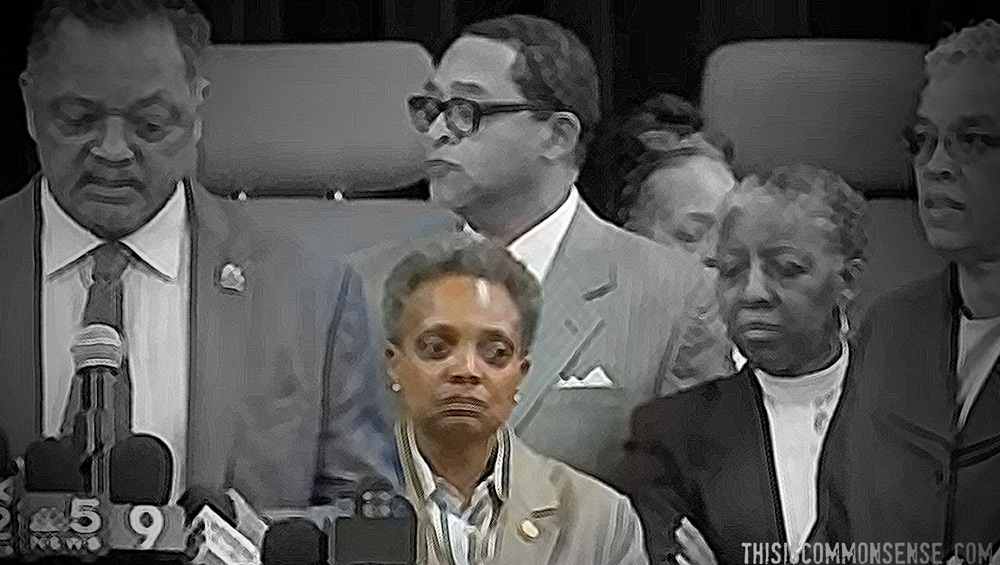Chicago, the nation’s fabled “second city” — though, now the third largest incorporated metropolis in these United States — sports a new mayor. On Tuesday, Lori Lightfoot won the city’s mayoral runoff by a whopping 47 points, tallying 73 percent of the vote.
As reported, she is a mayor of many firsts. While Chicago has previously elected two African-American men to be mayor as well as one female,* Lightfoot becomes the first female African-American mayor.
Additionally, Lightfoot is the first openly gay Chicago mayor.
And not to put too fine a point on it, she is also without a doubt the first openly gay, African-American female mayor of Chicago named Lori. Or named Lightfoot, for that matter.
But there’s more!
I’m here to tell you that Ms. Lightfoot has captured yet another, far more consequential first. Something not dictated for her by birth — such as skin color, gender or sexual orientation — but chosen in her individual decision-making process.
Lightfoot advocates reform and — unlike any other Chi-town mayor in history, from before the fire to now — she means limits on her own terms in office.
In fact, her campaign’s position paper on “Cleaning Up City Government” puts it first: Impose a Two-Term Limit on the Mayor.
“Chicago is the largest city in the country without mayoral term limits,” she notes, which “has led to entrenched leaders, a lack of new ideas and creative thinking and city government that works for the few, not the many.
“This will change when I am mayor,” she pledges, “and introduce an ordinance that brings Chicago into the mainstream by limiting mayors to serving two terms.”
Let’s do it. And why not limit the terms of city aldermen, too?
This is Common Sense. I’m Paul Jacob.
* In 1979, Jane Byrne became not only the first woman elected mayor of Chicago, but also the first woman elected to head any major U.S. city

—
See all recent commentary
(simplified and organized)

4 replies on “My Kind of Mayor?”
You must not think Portland Oregon is a major city, as it elected a woman mayor, Dorothy Lee, in 1948. https://en.wikipedia.org/wiki/Dorothy_McCullough_Lee. She won 85,000 votes against an incumbent who won only 22,500 votes.
The population of Portland in 1948 was about 355,000. By comparison, Chicago then had about 3,576,000 people; New York City about 7,759,000. If you regard Anaheim now as a major city, then indeed Portland then was a major city.
I did not regard Portland as a major city when I lived in Multnomah County in the late ’80s, when Portand’s official population was 486,083. Its official population seems to have peaked at 652,388 in 2020; anyone attending to what has been happening there understands why the population has gone into decline.
Can she be any worse than her predecessors?
Well…